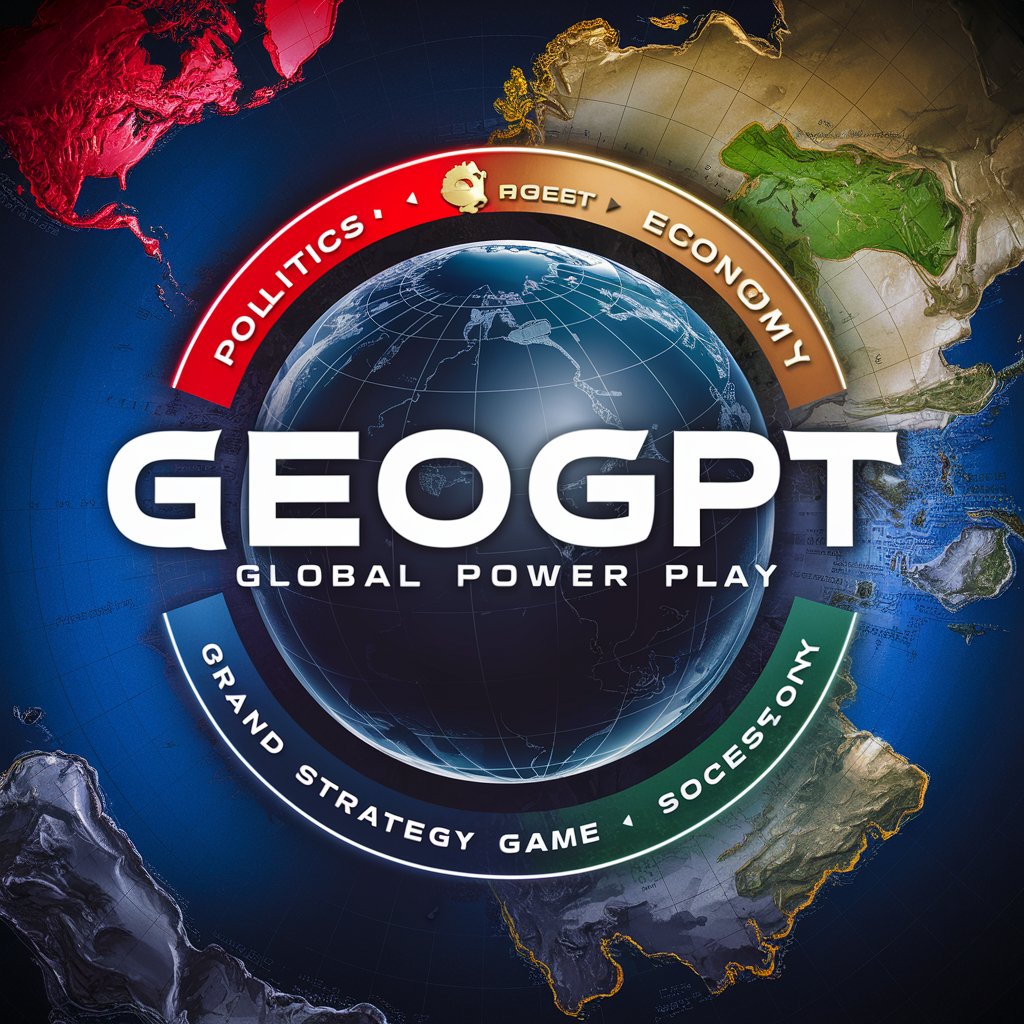7 GPTs for Strategic Simulation Powered by AI for Free of 2025
AI GPTs for Strategic Simulation are advanced computational tools designed to leverage the capabilities of Generative Pre-trained Transformers in the realm of strategic planning and simulation. These tools are specifically developed or adapted to assist in analyzing, modeling, and predicting outcomes in various strategic contexts. By utilizing the power of GPTs, these AI tools offer tailored solutions that can simulate complex scenarios, forecast potential developments, and provide strategic insights, thereby serving as invaluable resources in decision-making processes.
Top 7 GPTs for Strategic Simulation are: GeoGPT: Global Power Play,EVIL.AI,B1 Bomber Commander,EspionageMaster GPT,Survivor's Quest,Metropolis: Build A City,Sim Companies Profit Optimizer
GeoGPT: Global Power Play
Command Nations, Shape Destinies

EVIL.AI
Master Strategy Against AI Power

B1 Bomber Commander
Strategize, Navigate, Survive: AI-Powered Air Combat

EspionageMaster GPT
Master the art of espionage with AI.

Survivor's Quest
AI-powered Apocalyptic Survival Simulation

Metropolis: Build A City
Build, manage, and evolve your dream city.

Sim Companies Profit Optimizer
Optimize Your Sim Company with AI

Key Capabilities of Strategic Simulation AI
AI GPTs for Strategic Simulation boast several unique features that set them apart. Primarily, their adaptability stands out, allowing for customization across a spectrum of strategic applications, from simple predictive models to complex, multi-layered simulations. Specialized features include advanced language comprehension for analyzing textual data, technical support for a variety of coding languages, web searching capabilities for real-time data gathering, image creation for visual simulations, and robust data analysis tools. These features enable the tools to process and interpret vast amounts of information, model scenarios with high accuracy, and generate strategic insights.
Who Benefits from Strategic Simulation AI?
The primary users of AI GPTs for Strategic Simulation include novices seeking to understand strategic planning principles, developers creating customized simulation applications, and professionals in strategic roles across industries. These tools are designed to be accessible to users without programming skills, offering intuitive interfaces and guided processes, while also providing powerful customization options and programmable features for users with technical expertise.
Try Our other AI GPTs tools for Free
Warfare Management
Explore AI GPTs for Warfare Management: cutting-edge AI tools designed to enhance military strategy, operations, and decision-making with advanced data analysis and predictive modeling.
Global Economy
Discover how AI GPTs for Global Economy leverage advanced analytics to provide insights, forecasts, and analyses, empowering decision-makers with data-driven solutions.
Climate Adaptation
Explore AI GPTs for Climate Adaptation: cutting-edge tools designed to enhance climate resilience through data analysis, predictive modeling, and actionable insights.
Soil Health
Explore AI GPTs for Soil Health: Advanced tools leveraging AI to analyze, predict, and enhance soil health for sustainable agriculture and environmental conservation.
Water Efficiency
Discover how AI GPTs for Water Efficiency are revolutionizing water management with predictive analytics, real-time insights, and sustainable strategies.
Ad Optimization
Discover how AI GPTs for Ad Optimization leverage machine learning to tailor and enhance advertising campaigns, offering unparalleled efficiency and personalization.
Expanding the Horizon with AI in Strategic Planning
AI GPTs for Strategic Simulation redefine the approach to strategic planning and analysis. Their ability to process and analyze large datasets, simulate complex scenarios, and generate actionable insights offers a competitive edge. Moreover, their user-friendly interfaces make advanced strategic planning accessible to a wider audience, while integration capabilities ensure they can be seamlessly incorporated into existing workflows.
Frequently Asked Questions
What exactly are AI GPTs for Strategic Simulation?
AI GPTs for Strategic Simulation are specialized AI tools that leverage GPT technology to offer tailored solutions for strategic planning and scenario simulation.
How can these tools adapt to different strategic scenarios?
Thanks to their advanced AI and machine learning algorithms, these tools can be customized to simulate a wide range of strategic scenarios, from market trends to operational logistics.
Who can use these AI GPTs tools?
They are designed for a broad audience, including those without coding skills and professionals seeking advanced customization options.
What makes these tools different from other strategic planning software?
Their use of GPT technology for natural language processing, combined with simulation capabilities, offers unique insights and forecasts not typically available in standard planning software.
Can these tools integrate with existing systems?
Yes, many AI GPTs for Strategic Simulation can be integrated with existing systems to enhance data analysis and strategic planning processes.
Are there any sectors where these tools are particularly useful?
They are versatile across sectors but particularly valuable in finance, marketing, government planning, and any field that benefits from strategic forecasting and scenario simulation.
What is the learning curve for using these AI GPTs?
The learning curve varies but is generally low for basic use cases, with more advanced features requiring a deeper understanding of the tools' capabilities and customization options.
How do these tools ensure data privacy and security?
These tools typically employ advanced encryption and data protection measures to ensure user data privacy and security, adhering to relevant regulatory standards.